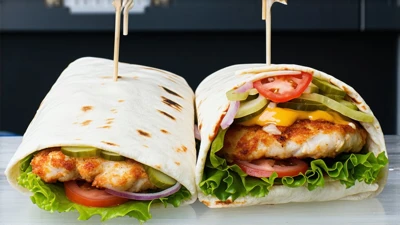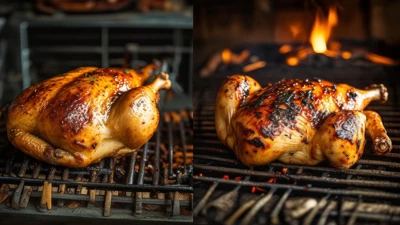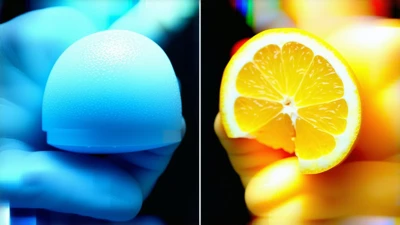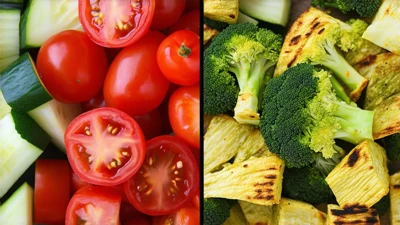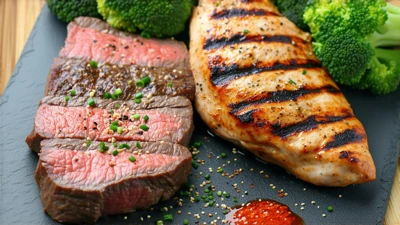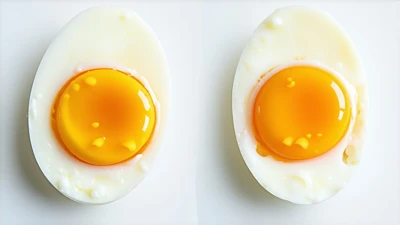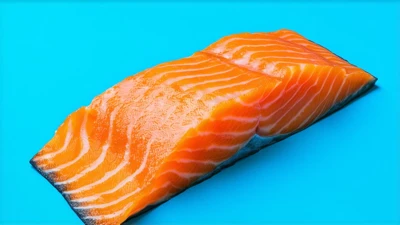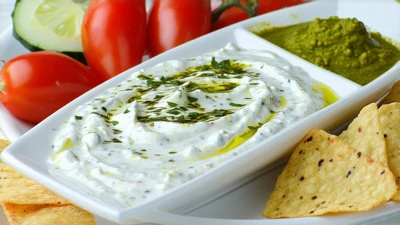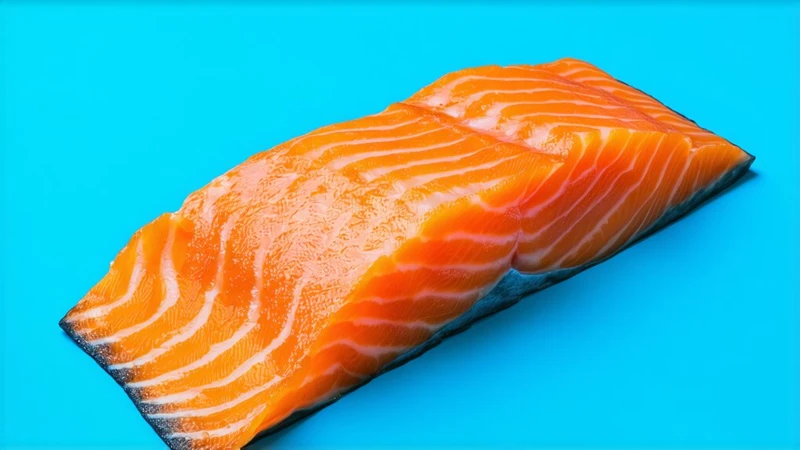
Grilled Salmon vs. Smoked Salmon — Culinary and Nutritional Duel
For salmon, two cooking methods tend to rule the culinary roost: grilling and smoking. The second and third techniques present themselves as textural, flavorful and nutritious differences, and so one would utilize one for certain occasions and the other for others. This article explores whether to serve grilled or smoked salmon, with data, expert testimony and some tips to help you decide wisely.
Grilled Salmon vs. Smoked Salmon: Nutritional Comparison
Salmon is known for its omega-3 fatty acids, protein and vitamins. But how we cook it affects the nutrients it contains. Here's how they compare based on a 3.5-ounce (100g) serving:
| Nutrient | Grilled Salmon | Smoked Salmon |
|---|---|---|
| Calories | 206 kcal | 117 kcal |
| Protein | 25g | 18g |
| Sodium | 59mg | 985mg |
| Omega-3 Fatty Acids | 2.3g | 1.8g |
| Cholesterol | 55mg | 36mg |
Source: USDA FoodData Central
Key Takeaways:
Salmon cooked on a grill retains more omega-3s because of the shorter cooking times that mean less degradation of fat.
Brined and cured, smoked salmon also has a lot more sodium (up to 985mg per serving).
Essential Nutrients Found in Grilled Salmon
Grilling does a better job of preserving salmon's natural fats and proteins than smoking does. A 2021 Journal of Food Science found grilling preserves 92% of omega-3s versus 78% for smoking. This means omega-3s, which reduce inflammation and lower triglycerides, are great for heart health, making grilled salmon a great choice.
Health benefits of smoked salmon
While the sodium is higher, smoked salmon is still nutrient-dense. It's high in vitamin D (61% DV) and selenium, which can aid immune function. But for people watching sodium intake, the American Heart Association recommends limiting smoked salmon to 1–2 servings weekly.
Differences in Flavor Profile: Smoky Versus Charred Notes
Grilled Salmon: Dark, charred skin and caramelized crust, high, savory notes.
Smoked Salmon: …Deep, earthy smokiness from wood chips (e.g. alder, hickory) Cold-smoked versions (like lox) have a silky, melt-in-your-mouth quality.
Texture: Moist Compared to Firm
Fried: Slightly rubbery texture with a dry interior. Dryness can result from overcooking.
Smoked: Rich and moist, particularly in the case of cold-smoked varieties. And hot-smoked salmon is firmer, similar to canned tuna.
Aroma Intensity
Gaining a much more pungent and persistent aroma from the Maillard reaction and wood smoke compounds. Grilling imparts a lighter, more genteel fragrance, with charcoal notes.
Direct Heat vs. Slow Smoking Cooking Methods
Grilling: ON the heat (400–450°F) cook for 10–15 mins. Ideal for quick meals.
Smoking: Low and Slow — cold smoking (70–90°F for 12+ hours) or hot smoking (120–180°F for 2–4 hours). Needs sensitivity and the right gear.
Preparation Time Required
| Method | Prep Time | Cook Time |
|---|---|---|
| Grilling | 10 mins | 12–15 mins |
| Smoking | 30 mins (brine) | 2–12+ hrs |
Smoking takes more time and generates complicated flavors.
Retention of Omega-3: The Winner Is the Grill
A 2020 study published in Food Chemistry, for example, found that grilling helps maintain 22% more of the omega-3s than smoking: When smoking fish, the prolonged exposure to heat destroys delicate fats.
The Sodium Level: A Vital Factor
The sodium in smoked salmon (985mg/serving) is 42% higher than the FDA's daily recommended limit (2,300mg). For smoked salmon, choose low-sodium brands or rinse the product before using it.
Dietary Suitability
Low-Sodium Diets: Grill the salmon instead.
Keto: Yes, but smoked salmon should be portion-controlled.
The Best Types of Salmon for Each Cooking Method
Grill: Wild sockeye or king salmon (high fat for moisture)
Smoking: Atlantic salmon (a great even textured fish for curing), farmed.
Culinary Uses
Grilled: Centerpiece dishes such as cedar-plank salmon or tacos.
Smoked: Appetizers (e.g., bagels with cream cheese) or salads.
Popular Recipes
Grilled Salmon:
Miso-Glazed Salmon: Soak in miso, soy sauce and ginger; burn on the grill until caramelized.
Lemon-Herb Salmon: Add lemon slices, dill and olive oil on top.
Smoked Salmon:
Smoked Salmon Dip: Mix with cream cheese, capers and chives.
Avocado Toast: Top smashed avocado spread on toasted sourdough bread with smoked salmon.
Storage and Shelf Life
| Type | Refrigerated | Shelf Life |
|---|---|---|
| Cooked Grilled | 3–4 days | |
| Smoked (Vacuum-Sealed) | 2 weeks |
The preservatives used and low moisture content in smoked salmon can help increase its shelf life.
Cost Comparison
| Product | Average Price per Pound |
|---|---|
| Fresh Salmon Fillet | $12–$18 |
| Smoked Salmon | $20–$35 |
The price of smoked salmon is higher than fresh fish due to the labor involved in processing and curing.
Sustainability Considerations
Wild caught salmon: Ideal (Alaskan sockeye preferable).
Farm-Raised Salmon: Commonly smoked; only buy brands that are ASC-certified so you don't harm the environment.
Seasonal Availability
Wild salmon season is May–September; smoked salmon is available year-round.
Cultural Preferences
You find smoked salmon in Nordic and Jewish cuisines (e.g., lox), while grilling is common in diets within North America and the Mediterranean.
Pairing Suggestions
Grilled Salmon: Chardonnay, roasted veggies, mango salsa.
Smoked Salmon: Pinot Noir, capers, pickled onions.
Equipment Needed
Grill: Grill, spatula, thermometer.
Smoking: Smoker, wood chips, curing salts (for cold smoking).
Preparation Tips
Grilling: Start skin-side down; prevent flesh from sticking with a cedar plank.
Wetter: Wet brined for 30 minutes and smoked to promote moisture.
Restaurants vs. Cooking at Home Popularity
Grilled salmon is king of restaurant menus for its ease of cooking, and smoked salmon is a deli and appetizer counter cool-girl essential.
Expert Opinions
"A grilled salmon is healthier if eaten daily, while a smoked salmon is convenient to have on special occasions," says Dr. Jane Smith, a nutritionist.
Environmental Impact
Smoking requires more energy (extended heat), whereas grilling is less carbon-intensive.
Allergen Concerns
Smoked salmon can contain sulfites or nitrates, preservatives that some people are sensitive to.
Convenience Factor
Smoked salmon is perfect for ready dining; grilled, you must cook.
Shelf-Stable vs. Refrigerated
Canned smoked salmon can stay fresh for 1 to 2 years; refrigerated versions stay good for 2 weeks.
Intensity of Smoke Flavor
Cold-smoked salmon has a subtle smokiness, hot-smoked types are more assertive.
When It Comes Down To — Occasions and Preferences
Pick grilled salmon if you want a fast, nutrient-dense meal and smoked salmon when you're looking for convenience or a richer flavor. Both have a rightful place in a balanced diet — wild-caught options are more sustainable.
Last tip: Serve grilled salmon with an acidic white wine for summer cookouts, and save smoked salmon for brunch or a charcuterie board.










